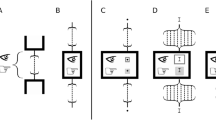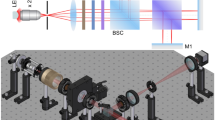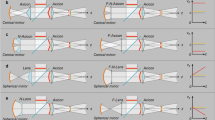Abstract
THE article headed “Television” which appeared in NATURE of Jan. 15, contains the following statement: “a difference of phase of only one degree is capable of spoiling definition.” Were this statement true, my television system, depending as it does on synchronism, would certainly, as the writer states, be faced with a very serious barrier. It is, however, a misstatement of fact. Phase difference between receiver and transmitter has no effect whatever upon definition, the whole effect being a displacement of the image as a whole.
This is a preview of subscription content, access via your institution
Access options
Subscribe to this journal
Receive 51 print issues and online access
$199.00 per year
only $3.90 per issue
Buy this article
- Purchase on Springer Link
- Instant access to full article PDF
Prices may be subject to local taxes which are calculated during checkout
Similar content being viewed by others
Author information
Authors and Affiliations
Rights and permissions
About this article
Cite this article
BAIRD, J. Television. Nature 119, 161–162 (1927). https://doi.org/10.1038/119161b0
Issue Date:
DOI: https://doi.org/10.1038/119161b0
Comments
By submitting a comment you agree to abide by our Terms and Community Guidelines. If you find something abusive or that does not comply with our terms or guidelines please flag it as inappropriate.



